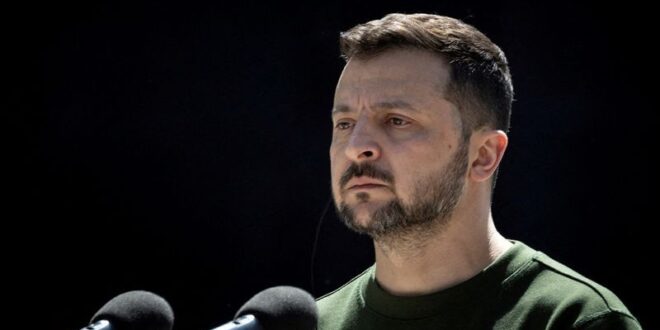(Reuters) – President Volodymyr Zelenskiy issued a fresh plea on Wednesday for upgraded defence systems to protect Ukraine’s cities against guided bombs, which he described as the “the main instrument” now used by Moscow in its attacks.
Zelenskiy has long called for improved air defences as Russia intensifies its assaults on energy and other infrastructure. Russia says it does not deliberately target civilian sites, but thousands have been killed and injured since its February 2022 invasion of Ukraine.
Speaking in his nightly video address, Zelenskiy said Ukraine had made progress in developing electronic weaponry, “but in countering Russian bombs much remains to be done.”
“There can be no alternative. Ukraine needs systems and tactics that will allow us to protect our positions, our cities and our communities from these bombs,” he said.
“This is now practically the main instrument of Russian terror and in the occupiers’ advances.”
Earlier this month, Zelenskiy said Russia had used more than 3,200 guided bombs against Ukrainian targets throughout April, along with more than 300 missiles and about 300 Shahed-type drones.
Russia has increasingly resorted to these bombs, which are directed to a target by a guidance system, have great destructive potential and pose fewer risks to air crews delivering them.
In his comments, Zelenskiy said four more countries — Albania, Austria, Chile and Mozambique — had agreed to attend a “peace summit” in Switzerland in June with the aim of creating a broad front to oblige Russia to agree to a peace settlement under the terms of the U.N. Charter and acceptable to Kyiv.
“Russian aggression has tried to turn the U.N. Charter into a museum exhibit,” he said. “Our peace summit, the participation of global leaders, can restore the full effectiveness and full protection of the U.N. Charter to every nation.”
Zelenskiy’s peace plan calls for the withdrawal of all Russian forces and the restoration of Ukraine’s 1991 borders.
Russia, which rejects the plan, is not invited to the June meeting and dismisses as pointless any discussion of the conflict without its participation.
(Reporting by Ron Popeski and Oleksander Kozhukhar; Editing by Bill Berkrot)
 BeritaKini.biz Berita Viral Terkini di Malaysia
BeritaKini.biz Berita Viral Terkini di Malaysia





